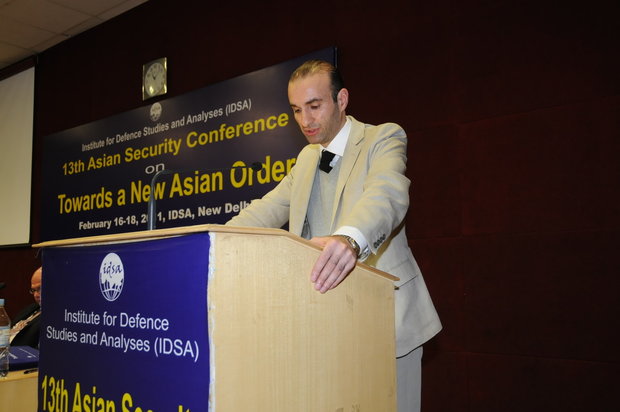In an attempt to put pressure on Iran and to rally the US international partners' opinion in favour of confronting Iran, Donald Trump last week decertified Iran's compliance with the nuclear deal known as JCPOA and vowed new sanctions against Iran.
To discusse the issue, Payman Yazdani from Mehr News agency reached out to Arshin Adib Moghaddam, Professor in Global Thought and Comparative Philosophies and Chair of the Centre for Iranian Studies at the London Middle East Institute.
Following is the full text of his interview:
According to Liberalism, international treaties and agreements are necessary for world security and stability. Some believe President Trump’s exit from international treaties is a threat to liberalism. What do you think of this?
Well President Trump is certainly not a liberal person. Rather, he seems an angry and authoritarian character. He is not a freedom seeker in terms of his politics, both in the United States and internationally. I don’t even think he knows the difference between conservatism and liberalism. Ultimately, his disrespect for the JCPOA is a good example for the inability of his administration to act strategically. A strategy would have required rallying global opinion in favour of confronting Iran; this US administration is not capable of doing this, partially because of its incompetency and partially because we are living in an increasingly non-American world order.
What can be the possible effects of Trump’s walking away from international treaties on international law and international and legal customs?
The immediate effect has been already that this US government has lost even more international credibility. The respected countries in the world are those that ensure the freedom of their people and pursue a coherent foreign policy aimed at international security and stability. Canada under Trudeau is a good example, Merkel in Germany has done well, and Macron is taking good steps. None of these leaders sits easily next to someone like Donald Trump, but they would have been rather close to a President such as Obama. In this non-American order, the efforts by the Trump administration to confront Iran and North Korea do not gain traction beyond the moment. So it is ironic, yet logical given the analysis above, that it is the United States that has been hurt the most by questioning a multilateral agreement such as the JCPOA.
Liberal order is basically based on multilateralism. Trump’s exit from Paris Climate Accord, TPP, NEFTA and possibly from the JCPOA in contradiction with multilateralism. Can such an approach guarantee the US power?
By detaching the US from international institutions, the global power of the country will diminish rather than increase. In an interconnected world, a multilateral strategy is necessary and prudent in order to channel diplomatic power to the global stage. The Trump administration does not seem to understand such realities, largely because they are in a state of delirium. Psycho-nationalist thinking does that to the human mind. It blurs the cognition of people. I have explored such dynamics in my new book “Psycho-nationalism” by Cambridge University Press.
Some say the regimes created after Second World War helped a lot to the US hegemonic power and the creation of the US favoured orders, but now these regimes doesn’t serve the US interest anymore, so the Trump’s measures to walk away from these regimes are very wise to weaken the regimes and exit. What do you think of this?
In the current world order which is increasingly multi-polar, where China, Russia, India and the EU are emerging as major gravitating centres, the United States simply can’t go it alone. The international system was never really purely US dominated. Don’t forget the bipolar order, when the Soviet Union dominated its own realm, including a good part of Europe. A prudent, strategic and powerful foreign policy has to create as many global nodal points for a country as possible, as many anchor points where the country can lodge into in order to pursuit its interest with a positive sum mentality which ensure the interest of others as well. If this is not the case, if a country isolates itself, it loses the ability to manoeuvre and to extend -hence - its foreign policy orbit. Unilateralism is a counter-productive foreign policy choice. In the end, the Trump moment will pass and his politics will be a mere footnote in history – one that most Americans will want to forget sooner rather than later. After all, most of his countrymen think him the biggest embarrassment in US history.
Interview by Payman Yazdani


























Your Comment